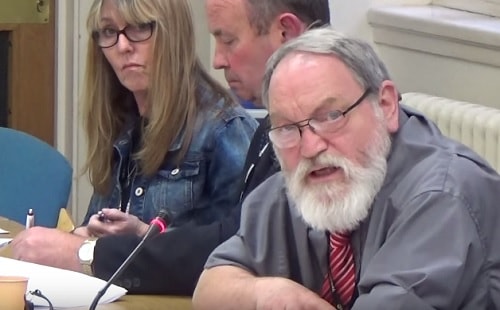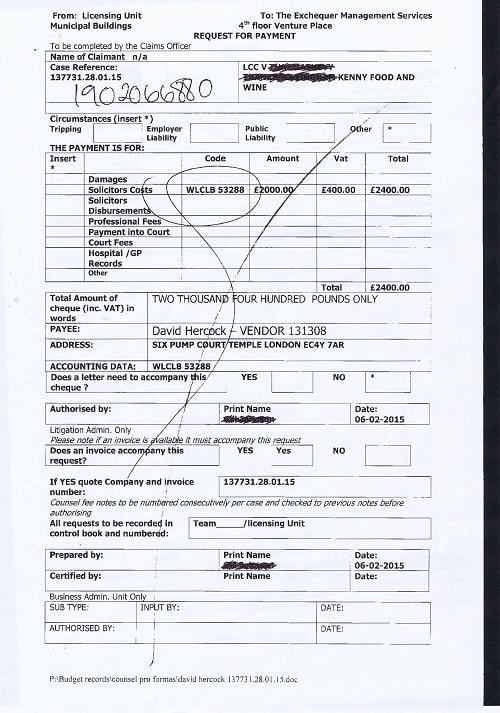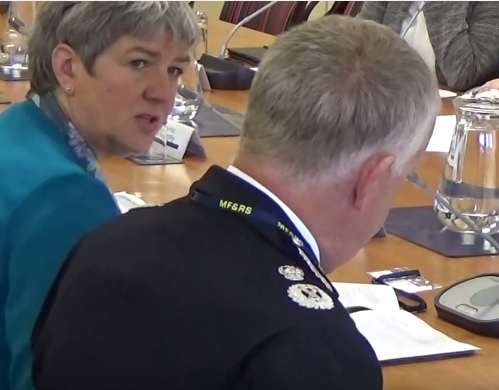EDITORIAL: Jeremy Corbyn, opposition, Saughall Massie fire station and “land swaps”

A councillor on Wirral Council once suggested to me I write an editorial. It was a good suggestion, but generally I like to steer clear about giving a party political opinion.
Over the weekend, Jeremy Corbyn was elected Leader of the Labour Party and Tom Watson Deputy Leader (Wirral’s own Angela Eagle missed out on becoming Deputy Leader).
Within hours of Jeremy Corbyn‘s election as Leader, I received a press release (nothing too unusual about that) from a PR company with quotes from DeVere Group (who describe themselves as “one of the world’s largest independent advisors of specialist global financial solutions to international, local mass affluent, and high-net-worth clients").
It seems that Jeremy Corbyn becoming Leader of the Labour Party has to put it mildly rattled those who work on behalf of the rich. There were a series of hyperbolic quotes which if I included here would be taking sides on a party political matter and alienate any of my readers that lean towards the left (although some of the quotes are so full of hyperbole that they’re funny).
However, it brings me to an important point about opposition. One of the quotes describes him as “Leader of Her Majesty’s Opposition” . Opposition really matters in politics.
Moving from national politics to more local matters, on Tuesday evening (I’m writing this on Sunday but it will be published on Monday) Wirral Council’s Regeneration and Environment Policy and Performance Committee will discuss Cllr Chris Blakeley’s notice of motion about whether the greenbelt land owned by Wirral Council in Saughall Massie should be blocked from being gifted, sold or leased to Merseyside Fire and Rescue Authority for a new fire station. The public meeting starts at 6.00 pm in Committee Room 1 at Wallasey Town Hall.
The issue was reported extensively on this blog and the local newspapers over the last few years, however it an example why opposition in politics is important because there are about a thousand people who signed a petition against it going ahead.
On Thursday afternoon, a meeting of Merseyside Fire and Rescue Authority’s Policy and Resources Committee will decide whether to transfer the land by Birkenhead Fire Station to Wirral Council for a Youth Zone. The land is worth an estimated £250,000, but is predicted to be transferred to Wirral Council “at nominal consideration” .
In other words Wirral Council will probably get it just for the costs of the legal costs involved in the sale and not at the market price. So how are the two issues connected?
Back on the 30th June 2015 when the issue was being decided by the Merseyside Fire and Rescue Authority, Cllr Lesley Rennie asked for an explanation about a series of emails from its former Deputy Chief Executive Kieran Timmins that had been released in response to a FOI request.
The Chief Fire Officer Dan Stephens just answered that he didn’t know anything about it, Kieran Timmins (the author of the email stayed silent) followed by comments from at least one Labour councillor alleging that Cllr Rennie was making things up.
Below is an email from Kieran Timmins suggesting that a “land swap” happens. It suggests Wirral Council gets the land it wants next to Birkenhead Fire Station in exchange for the land in Greasby (this is before Greasby was ruled out and replaced with Saughall Massie).
I have no idea what Wirral Council’s response was to this suggestion!?
I might also point out that Colin Schofield is the PFI Project Manager at Merseyside Fire and Rescue Service and it’s never been made crystal clear whether the new Saughall Massie fire station will be part of the PFI fire stations or owned outright by Merseyside Fire and Rescue Authority. DCLG (Department of Communities and Local Government) only partially answered my FOI request as to what Merseyside Fire and Rescue Authority was spending the £4.4 million of grant money on.
Timmins, Kieran
From: Timmins, Kieran
Sent: 12 December 2013 09:58
To: ‘Armstrong, David’
Cc: Royle, Jeanette E.; Schofield, Colin
Subject: RE: Request for Sites
Thanks David, much appreciated. Hope you are ok?
Not sure if Tony can pick this up but it strikes me as making sense if (presuming a Wirral owned site is identified in Greasby) that a land swap for the youth zone in Birkenhead might be a sensible approach for tidying up ownership etc…….. what do you think?
Take care
Kieran
Kieran Timmins
Deputy Chief Executive
Merseyside Fire and Rescue Authority
Fire Service HQ
Bridle Road
Bootle
L30 4YD
Tel: 0151 296 4202
Fax: 0151 296 4224
kierantimmins@merseyfire.gov.uk
www.merseyfire.gov.uk
If you click on any of the buttons below, you’ll be doing me a favour by sharing this article with other people.




